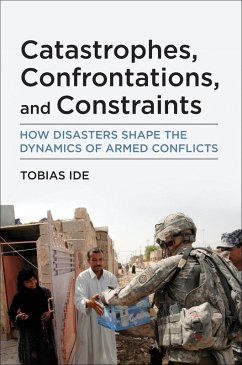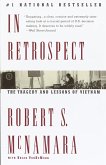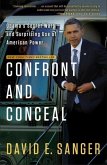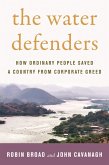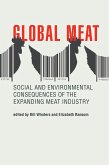A ground-breaking study on how natural disasters can escalate or defuse wars, insurgencies, and other strife. Armed conflict and natural disasters have plagued the twenty-first century. Not since the end of World War II has the number of armed conflicts been higher. At the same time, natural disasters have increased in frequency and intensity over the past two decades, their impacts worsened by climate change, urbanization, and persistent social and economic inequalities. Providing the first comprehensive analysis of the interplay between natural disasters and armed conflict, Catastrophes, Confrontations, and Constraints explores the extent to which disasters facilitate the escalation or abatement of armed conflicts-as well as the ways and contexts in which combatants exploit these catastrophes. Tobias Ide utilizes both qualitative insights and quantitative data to explain the link between disasters and the (de-)escalation of armed conflict and presents over thirty case studies of earthquakes, droughts, floods, and storms in Africa, the Middle East, Asia, and Latin America. He also examines the impact of COVID-19 on armed conflicts in Iraq, Afghanistan, Nigeria, and the Philippines. Catastrophes, Confrontations, and Constraints is an invaluable addition to current debates on climate change, environmental stress, and security. Professionals and students will greatly appreciate the wealth of timely data it provides for their own investigations.
Dieser Download kann aus rechtlichen Gründen nur mit Rechnungsadresse in A, B, BG, CY, CZ, D, DK, EW, E, FIN, F, GR, HR, H, IRL, I, LT, L, LR, M, NL, PL, P, R, S, SLO, SK ausgeliefert werden.

